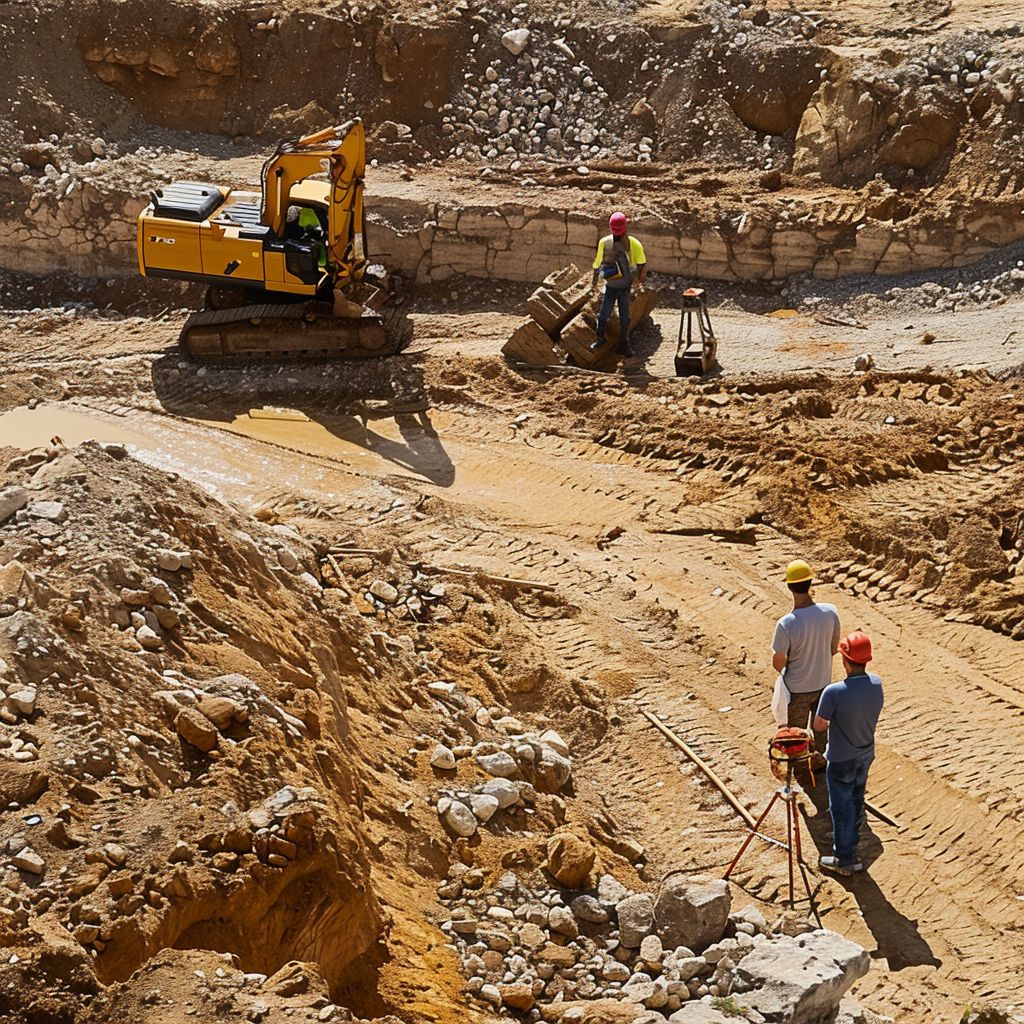


Have you ever thought about the factors that make a construction job efficient from beginning to end? Inspections on construction sites are essential in ensuring that every element of a construction project is in line with strict standards, which means protecting investment and maximizing profits. Land developers must know the different inspection stages which can make an important difference in a successful project by expensive delays. In this article, we'll go over the most important inspection phases in the construction process and provide you with the knowledge needed to plan and manage your development effectively.
Before digging, conducting a thorough assessment of the site is essential. Analyzing the location helps to uncover potential problems like inadequate soil, difficult topography, or environmental impacts. These issues can have a significant impact on the construction process and the project's viability. The inspectors evaluate the capacity of the soil's bearing drainage patterns, its bearing capacity, as well as any environmental issues to make sure that the location will be suitable to construct on.
Ensuring that your plans conform with the local building regulations and codes is a further crucial step. Discover how to track safety inspections on your site by visiting our guide on how to track safety inspections. A thorough examination of the design plans can aid in avoiding future problems like structural issues or legal disputes. This phase involves working with engineers, architects along with local government officials, to ensure that the design meets the standards required by law.
The obtaining of the required authorizations, permits and permissions are crucial prior to construction beginning. Inspectors play a vital function in ensuring compliance with the zoning laws and building codes. This ensures that the building is legal and sound, and that all necessary permissions were granted thus avoiding any legal issues once construction has begun.
When construction is underway structural and foundation inspections are crucial. Inspectors examine the strength of the structural and foundation elements to make sure they comply with the specifications of engineering and safety requirements. This is crucial in preventing structural issues which could affect the stability of the building.
Inspection of fundamental systems such as electrical, plumbing, and mechanical components during construction is imperative. These systems must be installed correctly to comply with legal requirements, ensuring both the safety and functionality of the building. Rigorous inspections confirm that installations adhere to approved specifications and plans.
Regular progress inspections are essential for monitoring construction developments and identifying potential issues before they escalate. These inspections are conducted periodically to review work progression, verifying alignment with project schedules and quality standards. By addressing problems promptly, developers can avert costly delays and maintain project momentum.
As the project gets closer to its completion A thorough walkthrough of the project is performed to ensure that everything conforms to the approved plans standards, codes, and standards. Final inspections are vital in ensuring that the project has been completed to the specified specifications and to ensure there aren't any major issues.
An inspection of a punch list entails making a list of small issues that require resolution prior to the final approval. The list is usually compiled through a thorough walkthrough. It comprises items such as small repairs, touch-up paint or changes. Making sure all punch list items are taken care of is essential to satisfying the expectations of clients and complying with legal requirements.
The final inspection before the transfer of the home to the customer is called the "handover" inspection. This inspection ensures that everything is in good order and ready to be occupied. It's the last chance to confirm that the work is completed to the highest standard in accordance with the contract. have been satisfied.
In the end construction site inspections are essential to the achievement of any development. Each inspection stage--pre-construction, mid-construction, and final inspections--plays a critical role in ensuring compliance, quality, and safety. For developers of land, the importance of these inspections does more than protect their investment but also boosts the profitability of the project. A thorough inspection is essential to ensuring success in project completion and pleasing customers. To learn more about optimizing your construction processes and maximizing profitability, visit Developers Research. Our expert insights and resources will guide you through every stage of your project. For more detailed information or to schedule an inspection, contact us today.
Inspections of construction sites ensure that the project is in compliance with specific local regulations, building code or safety requirements. Inspections can help to identify problems early and ensure the integrity of the structure and security of the structure while avoiding costly delays and legal complications.
Inspections can dramatically impact the timeline of projects by identifying and solving issues quickly and avoiding delays due to delays or non-compliance. Regular inspections to keep the project on track and help ensure that the project is completed on time.
Inspections are vital for land developers since they assure the safety, quality, and legality for the building project. In-depth inspections ensure the security of the developer's investment as well as reduce legal risks and improve the overall performance and profit of the project.
The length of time can differ based on the scale and complexity of the undertaking. Inspections can range from just a few hours for projects that are smaller, to many days or weeks for bigger development.